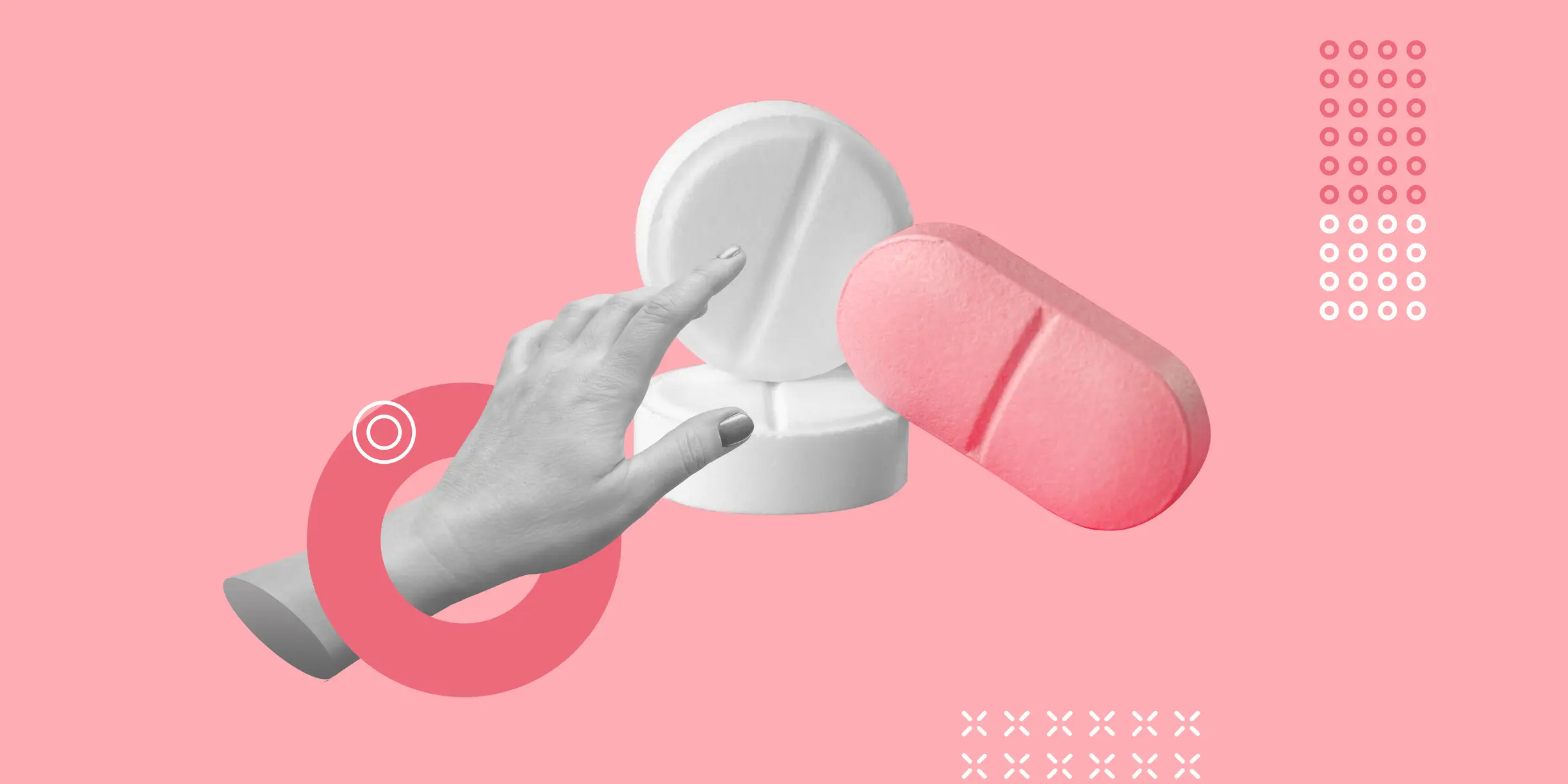
Published on Sep 23, 2025
Last modified on Dec 31, 2025
Elektra’s Take: Is Bioidentical Hormone Therapy Safer for Menopausal Women?
7 min read
If it seems like talk about bioidentical hormone therapy is *everywhere* these days, it’s not just you. In recent years, the conversation around hormone therapy has exploded in the women’s health and wellness space, and as you might have noticed, there are a lot of opinions. Here’s our take on the bioidentical hormone talk.
A quick refresher on hormone therapy….
During the menopausal transition, beginning in perimenopause, the body’s production of two key hormones, estrogen and progesterone, begins to fluctuate and progressively decline. Menopause hormone therapy (MHT), previously referred to as hormone replacement therapy or HRT, is a hormone-based medication regimen for symptoms associated with peri-/menopause. It typically involves taking a form of estrogen, often with progesterone.
Hormone therapy is proven to help with vasomotor symptoms of menopause (hot flashes and night sweats). For some people, it might help with additional menopausal symptoms like vaginal dryness, mood swings, and low energy.
Two of the most commonly prescribed medications in modern menopause management, estradiol and progesterone, are bioidentical hormones, and they are approved for use by the Food and Drug Administration (FDA). Bioidentical means they have the exact same molecular structure as the hormones produced by the human body.
But there’s a broader interpretation of the term bioidentical currently being applied in some settings and it’s causing confusion. Let’s discuss…
What is the bioidentical hormone replacement therapy approach?
Usually when patients ask about bioidentical hormones, they’re not asking about the FDA-approved medicines we mentioned above, but rather, the bioidentical hormone replacement therapy approach to prescribing (also called bioidentical HRT or bHRT). This approach is popular within the functional medicine space and has gained a real foothold in the menopause social media and advertising universe. It involves frequent lab testing, including urinary and saliva tests that are not evidence-based, and the custom dosing of compounded bioidentical hormone formulations. (More on compounding in a moment.)
Clinics operating within this framework will often market the process as superior to more traditional prescribing since it involves “natural hormones” as opposed to synthetic hormones, but this is misleading. Why? For starters, estradiol and micronized progesterone, two of the most common types of hormone therapy, are already bioidentical. (It’s kind of like saying “gluten-free rice.”)
Despite the fact that safe, FDA-approved, insurance-covered bioidentical hormones are available, patients are often told that the only way to get bioidentical hormones is through an intensive process involving custom-compounded creams, capsules, or transdermal pellets. This is where things get hairy…
The truth about compounding
Compounding in and of itself isn’t particularly dangerous. It’s a process of copying medications that have been FDA-approved and releasing them to the public without FDA approval. But in addition to the basic recipe, there’s often an ingredient added here, or removed there, and measurements aren’t always exactly the same as the original. It can be very helpful in some cases, like removing an ingredient a patient is allergic to.
That being said, because they’re not regulated by the FDA, the world of compounding pharmacies is a bit of a Wild West. While there are certainly reputable compounding pharmacies, many of them, especially those that sell products on the internet, are not adhering to rigorous testing standards. This can mean products include filler ingredients and inconsistent dosing, which may put patients at increased risk of side effects.
For these reasons, major medical organizations such as The Menopause Society, United States Endocrine Society, and American College of Obstetricians and Gynecologists do not recommend the compounded bioidentical hormone therapy approach.
Pro tip: If you’re seeing a healthcare provider and they recommend their own line of hormone products or supplements, exercise caution. Think about it…it’s like going to a mechanic to learn what’s wrong with your car, and they happen to also be a parts store. (Or, for a little nostalgia, when you were in college and a course required you to purchase the professor’s book.)
What prescribing looks like at Elektra
At Elektra, we believe patients deserve both relief from symptoms and peace of mind about safety, which is why our prescribing philosophy adheres closely to guidelines set forth by The Menopause Society. We prescribe FDA-approved hormonal medications, including the bioidentical hormones estradiol and progesterone, as well as non-hormonal medications.
Our clinicians work with patients to weigh the risks and benefits of any treatment, and will look at factors like family medical history, existing health conditions, and symptom severity. At the end of the day, we know that menopause symptoms can have a true bearing on quality of life, and we want to help women find solutions that are safe and make sense for them as individuals. After all, menopause is anything but one-size-fits-all.
The bottom line
Clinically, the term “bioidentical” refers to hormones that are chemically identical to those the human body naturally produces. However, the term has been co-opted to encompass an entire philosophy of care that includes expensive labs and testing as well as the prescribing of compounded hormones. This version of menopause care is not evidence-based or endorsed by major medical establishments. In short, when you hear “bioidentical,” it’s more of a marketing term than a validated medical term. And it’s often used in ways that overstate its benefits, underplay potential risks, and promote unregulated treatments.
So yes, Elektra DOES prescribe bioidentical hormone therapy in all its forms (patches, pills, rings, sprays, gels). However, we want to be clear about what we prescribe: safe and effective, FDA-approved treatments, not compounded bioidentical hormones.
Interested in learning more and finding a safe, effective treatment that works for you? Meet with a board-certified, menopause-trained clinician >>
READ MORE:
- All about Vaginal Estrogen (Patches, Creams, Gels, Etc.).
- Progesterone vs Progestin: What’s The Difference?
- Elektra Guide To Hormone Replacement Therapy (HRT) in Menopause
- 5 Non-Hormonal Treatment Options For Hot Flashes
- Wait…How Long Can You Be On Hormone Therapy?
- Hormone Therapy For Depression…Does It Help Or Hurt?


